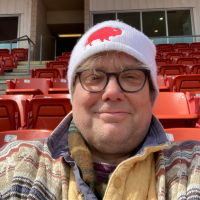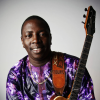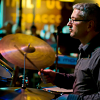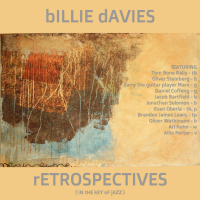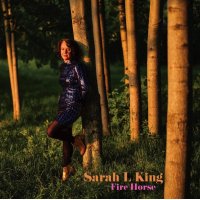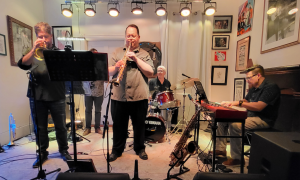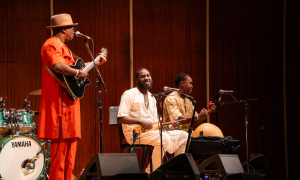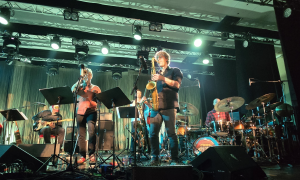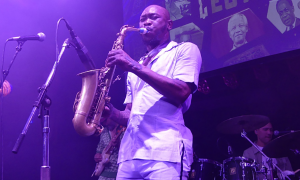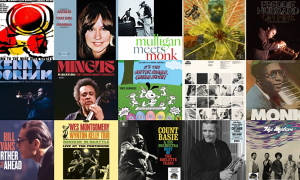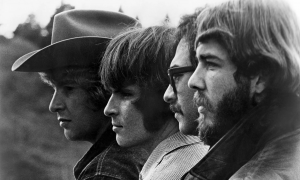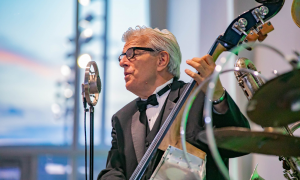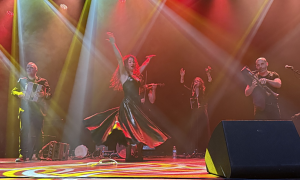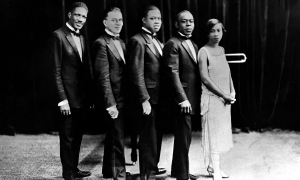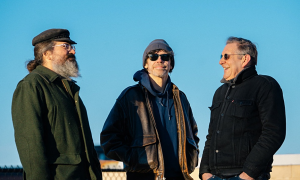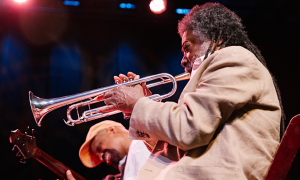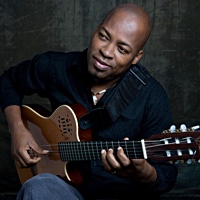Home » Jazz Articles » Live Review » Vieux Farka Toure at Kleinhans Music Hall
Vieux Farka Toure at Kleinhans Music Hall
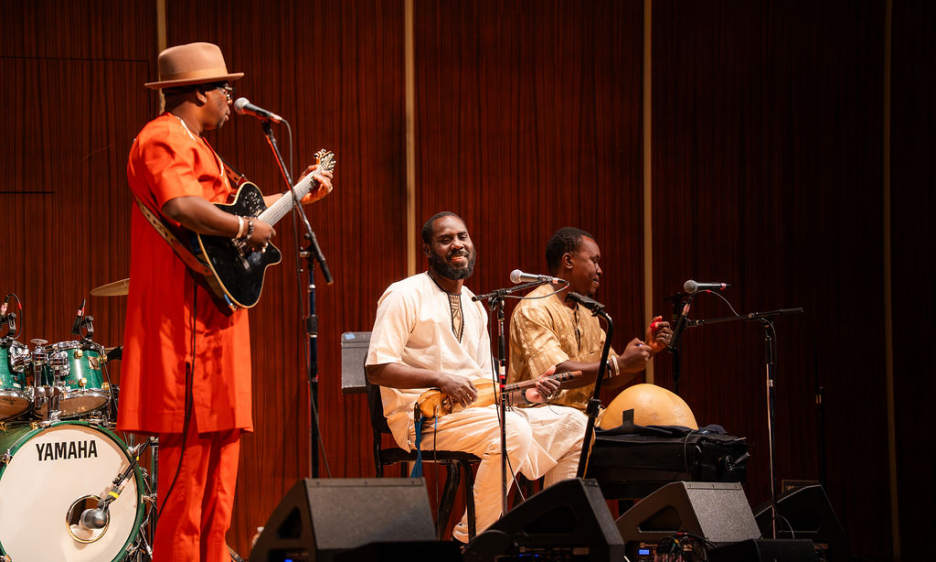
Courtesy Sara Heidinger
The concert was an object lesson in live music’s unique, transmuting power, a tour of a proud and ancient empire turned to dust by a wobbly earth and mercurial monsoons.
Kleinhans Music Hall
Buffalo, NY
April 27, 2025
A spinning top occasionally wobbles. Our spinning earth does the same thing: it's called the "Chandler Wobble." Because of the Chandler Wobble, monsoon rains in the Sahara appear then disappear every 21,000 years. This alternating cycle of "Green Sahara" and Sahara Desert has occurred 230 times in the last eight million years.
During most recent cycle, named the African Humid Period, the Sahara Desert was green, damp, lush and home to a thriving civilization. Thus, when climate change made their home uninhabitable ten millennia ago, the peoples of the Green Sahara migrated to new lands. The desertification caused lakes and rivers to dry up, leaving reservoirs of rock salt which helped make the Saharan Mali Empire wealthy beyond measure to those who remained in the desert sands..
In ancient Mali, gold was mined and traded in tandem with salt essential for food preservation, flavoring and health, making it worth its weight in gold. Situated between the Mediterranean, sub-Saharan Africa, and the Middle East, the Mali Empire supplied half of the world's gold from the 13th to the 17th Centuries CE .
This vast empire was so wealthy that when Mansa Musa, the king of Mali, made the hajj to Mecca in 1324, he transformed the world economy by spending his tremendous wealth on mosques, libraries and scholars. In Mansa Musa's time, the Mali Empire was renowned as a trading, intellectual and cultural world hub. Its cosmopolitan sophistication lit West Africa in the Golden Age of Islam during the European Dark Ages.
Like New Orleans jazz, the music of Mali developed into an ethnically diverse world music. It was grounded in ancient rhythms and harmonies from the Mediterranean and Middle East. The music of West Africa birthed blues and rock music, which like the burning sun , returned to West Africa, reconfiguring it as desert blues. Its leading figure was Ali Farka Toure (1939-2006), the father of Vieux Farka Toure.
In Buffalo Touré closed his American tour with an afternoon concert at Kleinhans Music Hall's Mary Seaton Room. Live music doesn't get much better.
Touré's African call-and-response vocals in "Flany Konare" are familiar; less familiar were the hypnotizing polyrhythms. Rather than the timekeeping role that drums play in blues and rock, "Flany Konare" features the percussion (calabash) playing a complex figure underneath the guitar and bass, playing a different rhythm.
Touré's virtuosity is manifestly different than the fingerboard pyrotechnics of rock's guitar gods as he never really played a guitar solo. He uses a one-finger technique filled with hammer-ons and pull-offs, playing melody and harmony counterpoint within a polyrhythmic pocket.
Touré's guitar, French lyrics, countermelodies played on the n'goni by Ousmane Dagno, and the entrancing rhythms from drummer Adama Kone and bassist Marshall Henry created a clear, spellbinding effect on the Buffalo audience. Touré seemed keenly aware of his music's transformative effect as he monitored his audience like a facilitator at an ayahuasca retreat; between songs he asked, "You guys good?"
The concert was an object lesson in live music's unique, transmuting power, a tour of a proud and ancient empire turned to dust by a wobbly earth and mercurial monsoons.
Yes. We were good.
Tags
Comments
About Vieux Farka Toure
Instrument: Guitar and vocals
PREVIOUS / NEXT
Support All About Jazz
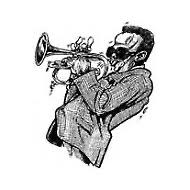 All About Jazz has been a pillar of jazz since 1995, championing it as an art form and, more importantly, supporting the musicians who make it. Our enduring commitment has made "AAJ" one of the most culturally important websites of its kind, read by hundreds of thousands of fans, musicians and industry figures every month.
All About Jazz has been a pillar of jazz since 1995, championing it as an art form and, more importantly, supporting the musicians who make it. Our enduring commitment has made "AAJ" one of the most culturally important websites of its kind, read by hundreds of thousands of fans, musicians and industry figures every month.

